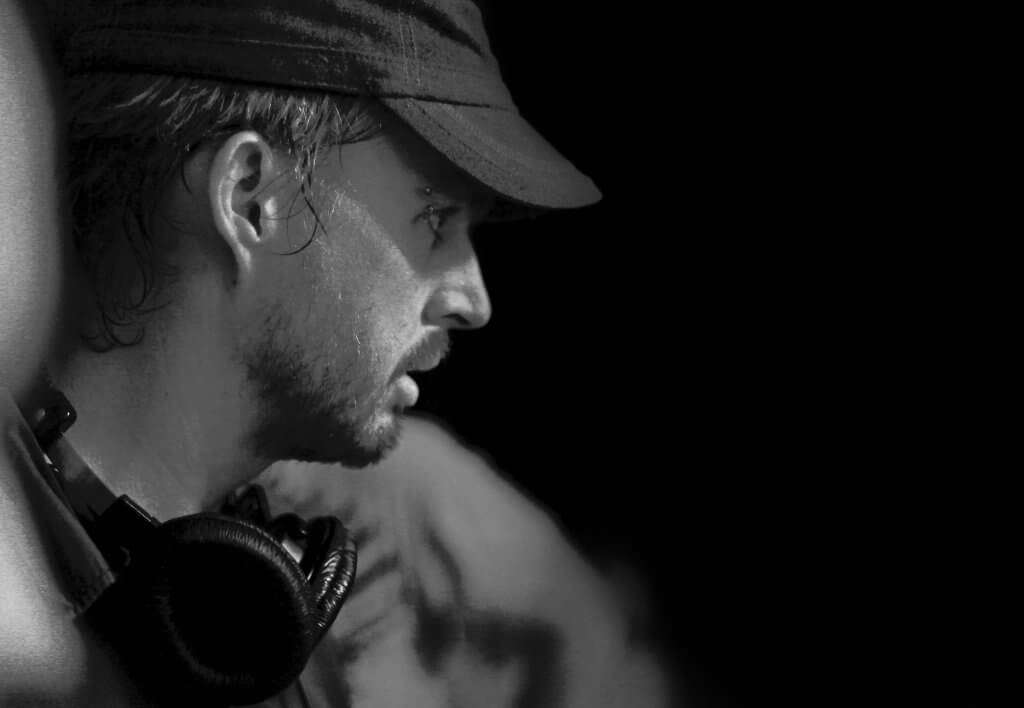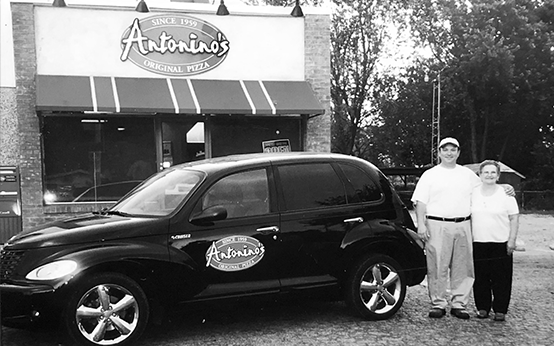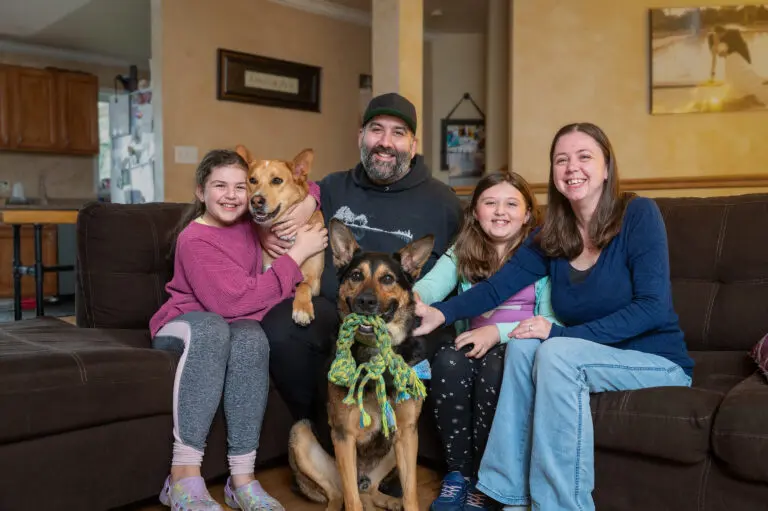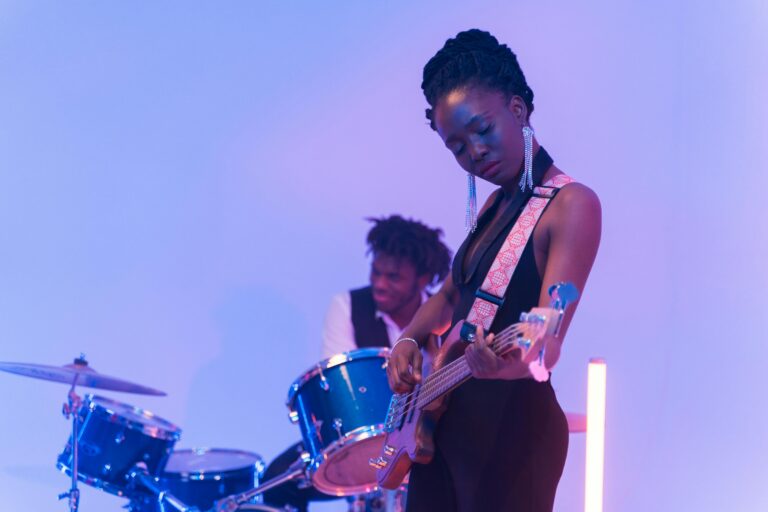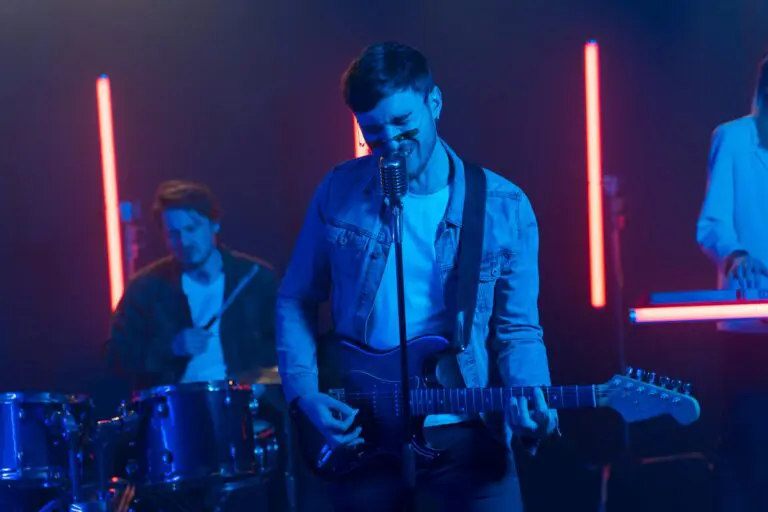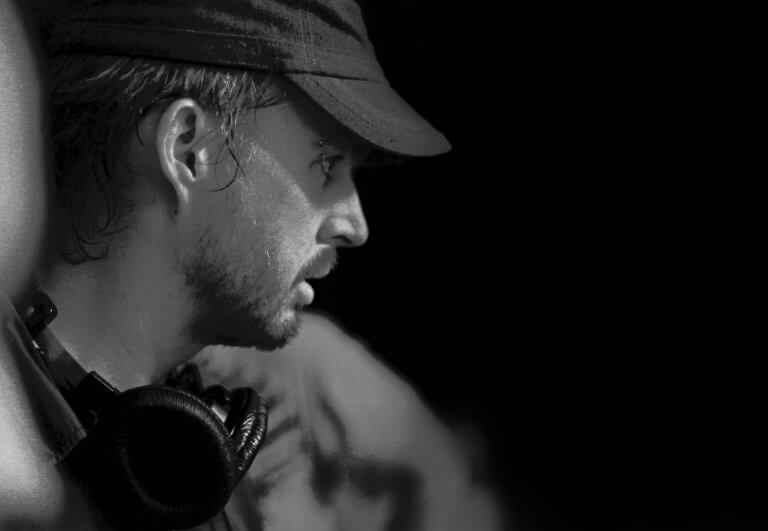The film Last Call is a story about a man, Scott, who attempts to reach a suicide crisis line but dials the wrong number. He gets connected to a single mother, Beth, working as the night custodian at a local community college. The two spend the night talking on the phone as perfect strangers, exchanging nothing identifying but first names. As their conversation progresses and gets deeply personal, Beth learns Scott has an alcohol addiction, is calling on the anniversary of his son’s death, and is thinking about ending his life.
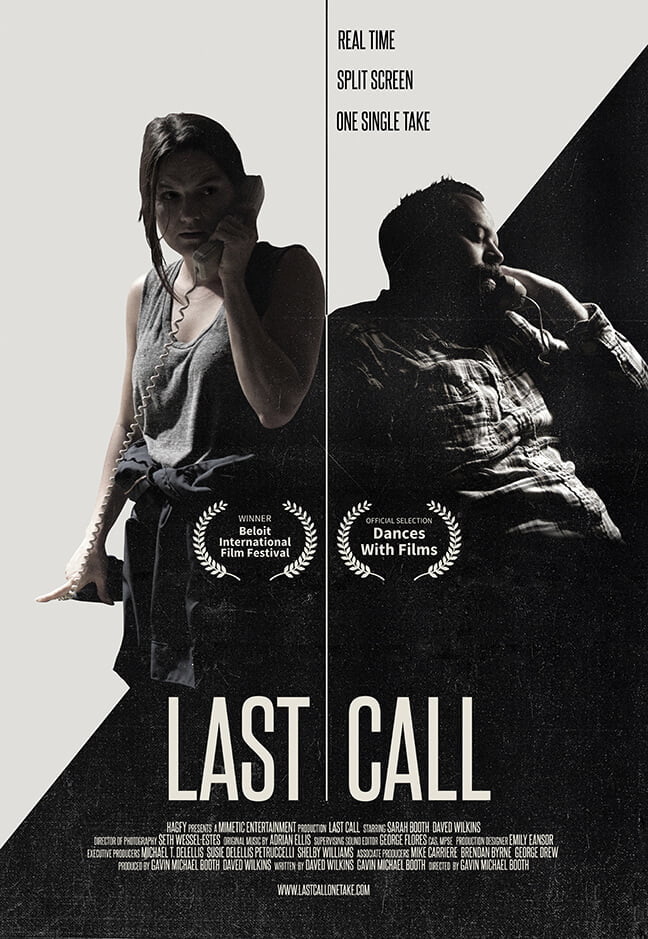
A personal conversation
Gavin Michael Booth, an award-winning filmmaker from Windsor, filmed the project in two true single-takes. The movie is presented in split-screen, and showcases both characters in real time as they navigate a deeply personal and life-changing conversation. “The camera never shuts off from the beginning of the movie until the end. So you’re watching two unbroken takes. You’re watching two camera crews filming in two different areas of Windsor,” shares Booth.
The subject matter of the film is heavy, but making a film with a serious focus is not something from which Booth shies away—he makes sure to approach the topic with caution and care. “We wanted to be as careful as we possibly could to respect the subject of mental health and not make light of it nor use it just for the sake of entertainment.” When he sat down with Daved Wilkins, the actor who plays Scott in the film, the two did research to figure out how to best tell the story.
“We researched with a friend of ours who works as a volunteer crisis worker taking these calls. We learned that there is a protocol where if you’re not agreeing to be off the phone safe in 20 minutes, they call the police to do a wellness check on you. It’s hard to make a feature film with just a 20-minute time slot, so we came up with the idea of Scott calling a random stranger,” explains Booth. Dialling someone random also worked well to develop the storyline—the anonymity allows both characters to get vulnerable with the stranger on the other side of the call.
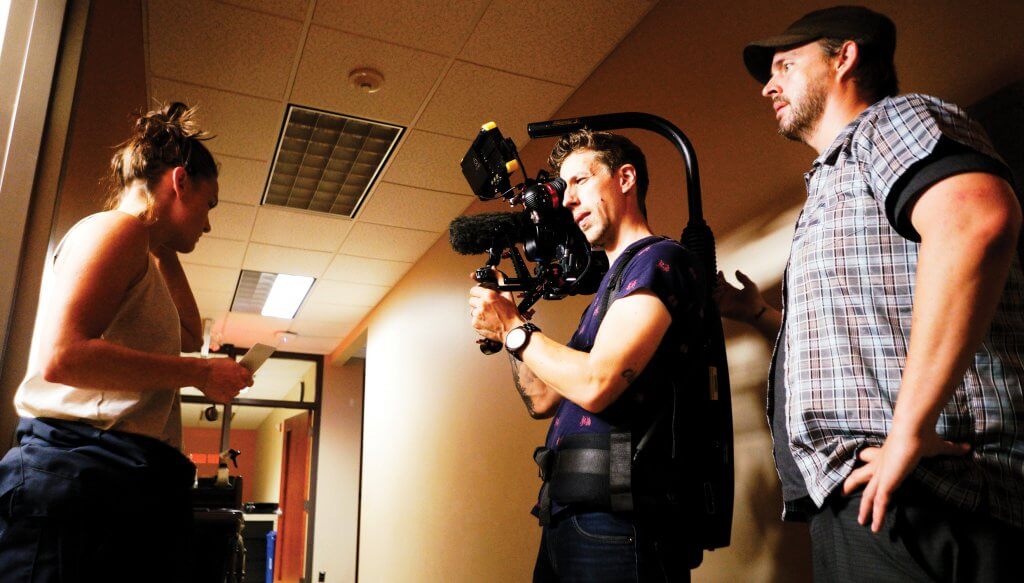
“Where’s My Love” the silent struggle
This isn’t the first time Booth has presented emotional and sensitive storylines on screen. He directed and co-produced a music video—SYML’s “Where’s My Love”—that also shows a young woman and her silent struggle with mental health. The video has over 15 million views on YouTube, and it’s worth reading some of the top comments people have left on the video about how they’ve interpreted the story and found meaning in it (many have shared personal anecdotes of life, death, and depression). The music video, like Last Call, was shot entirely in Windsor.
Booth prefers to film in Windsor, even though he currently resides in Los Angeles. Filming in L.A. is costly and complicated depending on where the filming is taking place. If the project has commercial value, the filmmaker needs a permit that costs at least a few hundred dollars. Hiring talent is also more expensive in L.A. than in Windsor. “A lot of my friends in L.A. are incredibly jealous when I explain to them how easily I get access to places in Windsor and they often don’t believe it,” shares Booth. “They think Windsor is this mythical place where indie filmmaking is welcome. We wouldn’t have been able to make Last Call if it weren’t for the generosity of people in Windsor and St. Clair College who allowed us to have so much access and work within the means of our budget.”
How he started
Booth explains that local businesses are just one degree of separation away as he has a strong network in the area. He grew up in Amherstburg and remembers spending his childhood watching movies with his family.
“My dad showed me a lot of R-rated movies like Alien and all these movies that I shouldn’t have watched when I was seven or eight years old. But I just loved them and could handle the violence and mature themes. I was movie-obsessed,” he remembers.
This obsession with movies inspired Booth to buy his first camcorder with the money he saved up from delivering newspapers door-to-door. “That was the one thing I wanted to have as a kid so I could make movies with my friends, which is funny because it’s the same mentality now. I just like getting together a big group of artists and friends that I can collaborate with. I would spend all my evenings and weekends making terrible parody movies of Indiana Jones or Friday the 13th.”
As he got older, that passion for filmmaking remained. He went to General Ahmerst High School where he was encouraged by a film teacher, the late Keith Harrick, to turn that childhood obsession with movies into a serious hobby. “I compare my teacher to Robin Williams’s character in Dead Poets Society. He was all about ‘carpe diem’ and seizing the day. He had a knack for video editing and telling stories so he started encouraging me to show my work,” says Booth. Mr. Harrick would bend the rules in Booth’s favour—giving him the alarm code to the school so he could work there after hours.
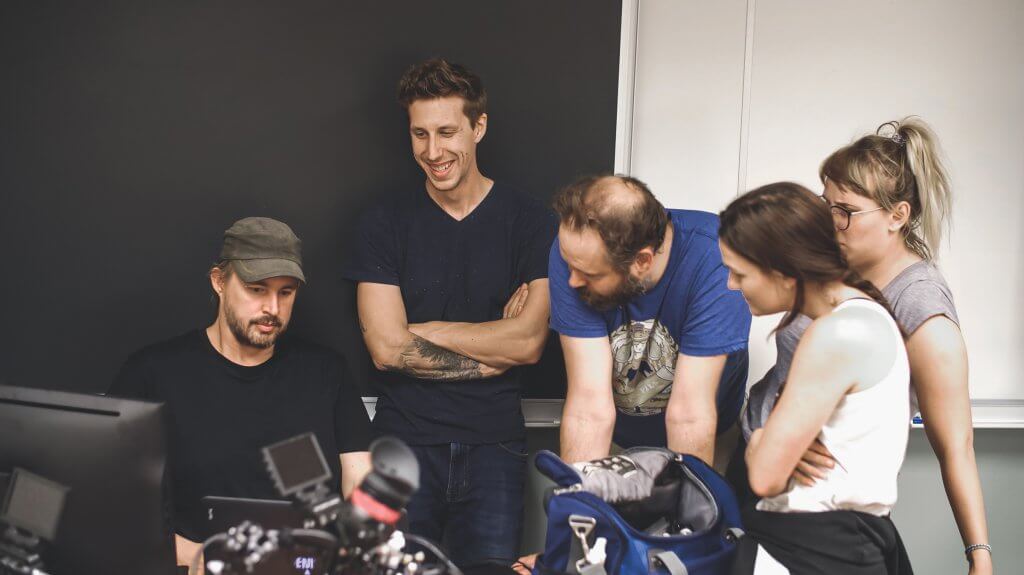
For the love of movies
By the time it came to picking a career after high school, Booth knew he wanted to make films for a living. Since he couldn’t afford film school, he started doing any paid work he could find that would allow him to practice his video making skills, from wedding videos to local TV commercials. “A lot of people will move to a larger city. They have to have two day-jobs or work their way up the film industry [by starting at the bottom]. But I was able to start my company and be in charge of my career by staying in Windsor,” shares Booth.
Booth got his first big opportunity when he decided to break a few rules by sneaking into a Third Eye Blind concert in Detroit. “I made fake Canadian media credentials and used them to go to concert venues with a camera and tell them I was there to meet the band and do an interview. It was just my way of being a starving artist and not pay for tickets to these concerts I wanted to go to.” It ended up working out well for him—Booth got a job shooting tour video for Third Eye Blind and working with Stephan Jenkins, the singer of Third Eye Blind, on a documentary for an album he was producing. “I still work with the band today in different capacities—sometimes editing, sometimes tour videos.”
Moving to L.A.
Working with the band was the opportunity that took Booth to Los Angeles. Moving to L.A. helped him develop a network of like-minded individuals in the industry. A few years ago, he worked with a company called Blumhouse, a company known for making horror films like the remake of Halloween and Paranormal Activity. Booth got to film a live movie with the company. It was broadcast to an audience over the internet in real time and it’s one of many opportunities that Booth says he wouldn’t have had if he hadn’t relocated to L.A.
Most recently, Booth got the chance to partner with a movie theater chain in the United States to do a showing of Last Call in seven cities on September 13th and 14th.. “It’s part of national suicide prevention week. It’s an event they want us to put on. We hope the film will be a conversation starter about the topic but we know we have to wait until people see it and tell us that it’s a conversation piece. It’s not for us to dictate how people will react to it.” Booth understands that audience perception may differ from artist intention. “With any art piece you put it into the world, you hope that it has the effect you want it to, but you don’t get to be the decider of that.”
Another piece of advice that Booth has for emerging filmmakers who are entering the industry is to start educating yourself on the current trends. “Cinemas are betting on sequels and giant blockbusters like The Avengers and Wonder Woman. But Netflix is a real disruptor because now there’s a home for all this other content. There will also be a lot more available for niche audiences and fewer global things like Lost or 24 or Stranger Things. It used to be that the entire global community enjoyed the same thing. I think it’ll just be smaller niche audiences.”
Booth also believes that filmmaking is more accessible now than ever before. He uses film director Steven Soderbergh as an example of someone who has made films using an iPhone. “The industry has become much more democratized in that you can be anyone and if you have access to the internet and a smartphone, you can produce work and have it be seen online.” That’s not a luxury that Booth had early in his career.
“I shot my first three films in Windsor and the industry was different back then. We tried to sell them but we didn’t. It’s a disappointment to cast and crew and investors when you take a risk and there isn’t a reward. But you can’t be scared of failure or rejection,” says Booth. “With every terrible step along the way, you have to learn how to turn it into a win or a lesson. There’s a lot more failure than success but nobody really talks about failures along the way.”
With risk comes failure, and success
And failure is something that you are more likely to encounter when you take risks and do something new, like Booth recently did with a series of self-portraits he took for his portfolio. In the photos, he’s seen sitting on the road with a sign that reads, “Will Direct for Food.” He wanted to take photos that were different than what most film directors have: black-and-white, serious-looking headshots. His photos are symbolic of his time in the film industry. “All directors’ photos mostly look the same. I’m a starving artist—everything I make goes right back into my career. It’s not a fun struggle but it’s just the sacrifice to make this all work.”
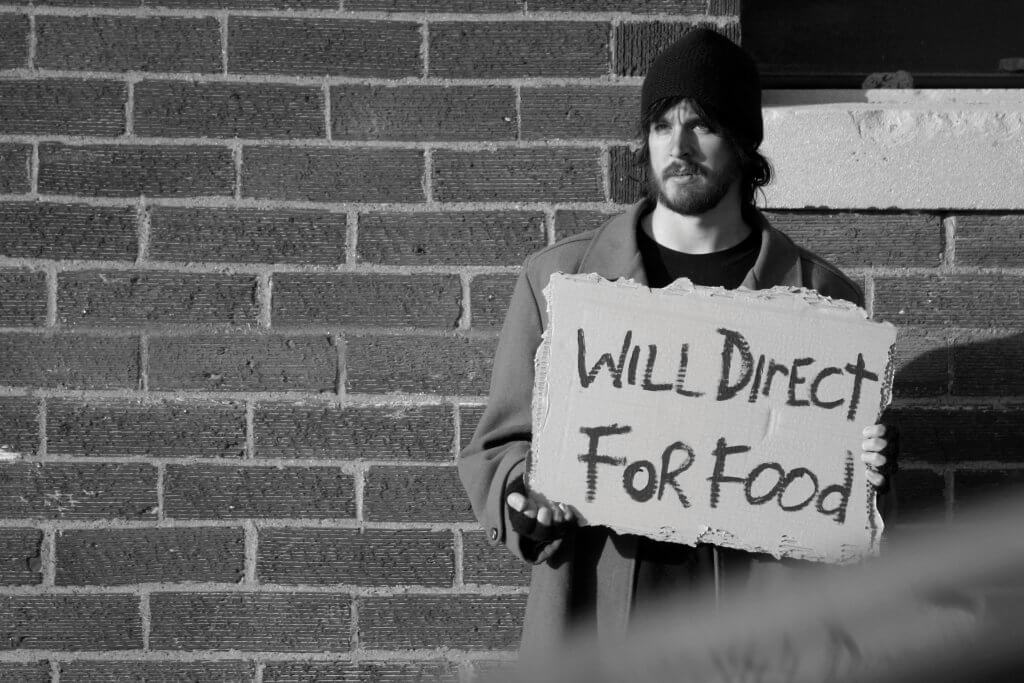
To stand out and be memorable in the overcrowded business of content creation, Booth believes in taking big creative risks and breaking conventional rules. He credits Mr. Harrick for instilling that approach in him. “He did some out-of-bounds teaching but I am blessed for it. He sparked a little bit of rebellious spirit in me, which has been my number-one asset moving forward.”
Whether it’s covering serious storylines, sneaking into school after hours to edit videos, or showing up at concerts with fake media passes, taking risks—small and big—is a recurring theme in Booth’s life story. “In order to win big, you really gotta risk big,” says Booth. “That’s the basic law of gambling and this entire industry is a gamble.”
Last Call trailer: https://vimeo.com/338689151
Last Call premieres at The Chrysler Theatre in Windsor on September 21 @7pm.
Tickets on sale via the Chrysler Theatre Box Office www.chryslertheatre.com
For movie trailer and more information visit:
www.gavinmichaelbooth.com
